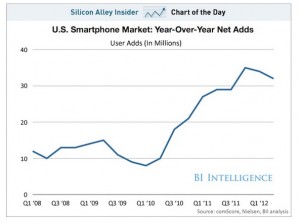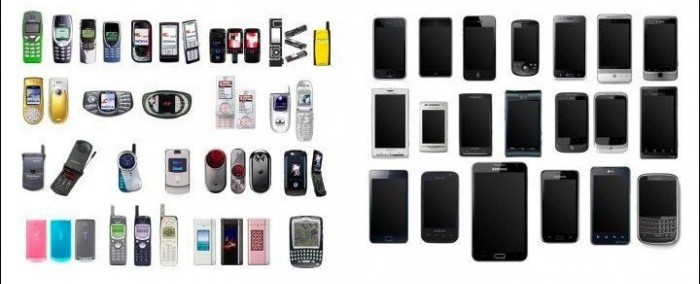As every mathematics student knows, what’s most interesting about variables is the rate at which they are changing — the derivative. This graph — from Business Insider — plots the derivative of smartphone sales in the US. As you can see, the rate of change has apparently peaked, which means that sales are slowing. So does this mean that the smartphone explosion is over?
Henry Blodget, with his customary certitude thinks that it is. The peak of annual unit gains, he says, occurs around the halfway mark of adoption and US smartphone penetration is now around 50 per cent. If true, this means that smartphone sales in that market will “become more dependent on replacements and upgrades than attracting new users”. And of course networks will have to find ways of screwing more revenue out of existing users.
I suppose we will reach a point in developed countries where nearly everybody has a smartphone — though having recently seen the old-style Nokia phones my kids got for going to music festivals, I wonder. After all, these ancient devices have amazing battery life, in addition to being tiny and robust.
Even if Business Insider and Blodget are right about the saturation of the US market, there are huge markets in the rest of the world where the smartphone invasion is just beginning.
Given the banking crisis brought about by complex ‘derivatives’, it’s nice to find a derivative that’s actually useful.


